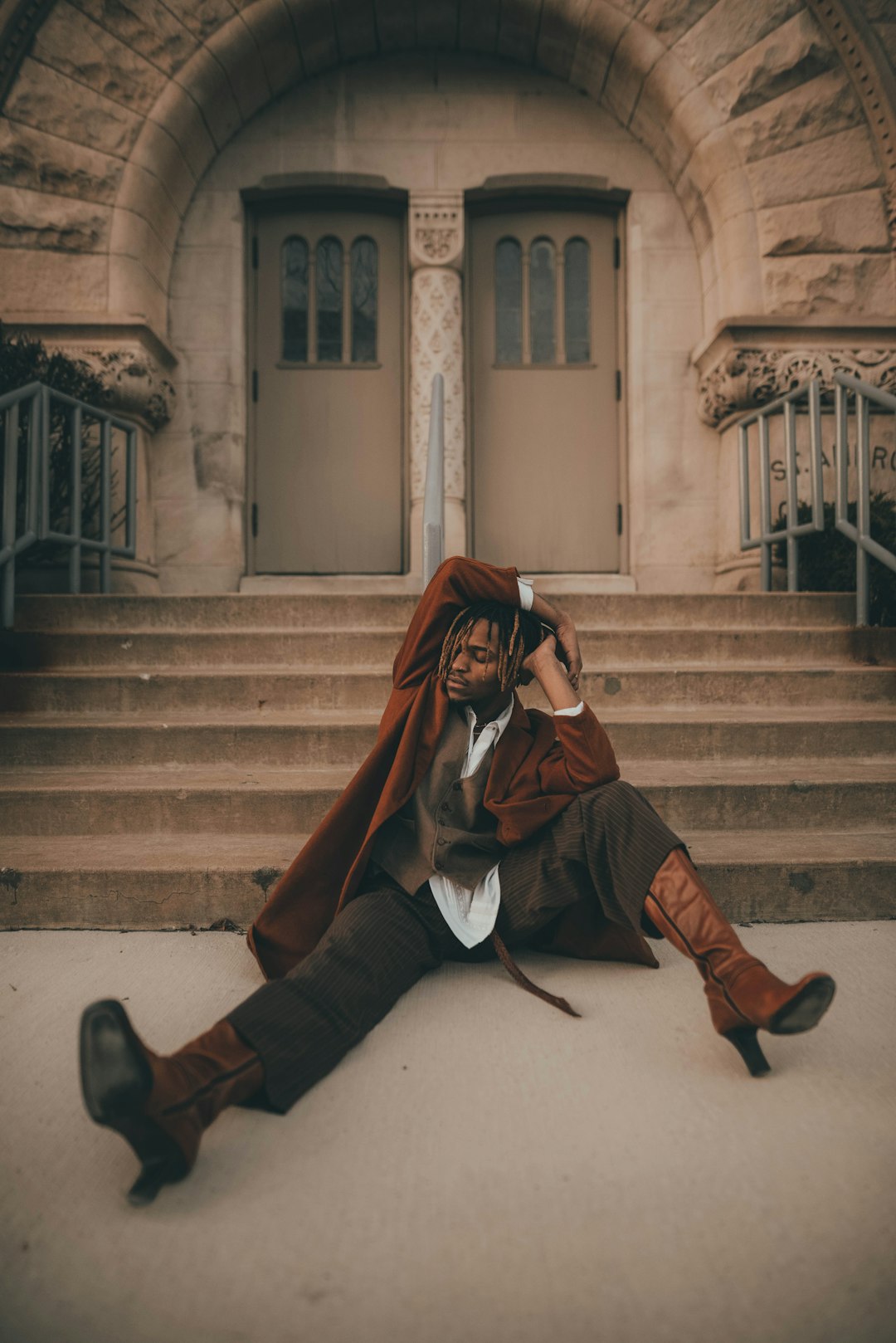WADEYE, Australia — After an hourlong flight over the ocher sands of northern Australia, the choose stepped off the airplane and made her solution to the makeshift courthouse, a single white-walled room subsequent to a brand new $20 million police station ensconced in barbed wire.
Exterior, greater than a dozen Aboriginal defendants waited barefoot within the blistering warmth. Most spoke little English. They’d have only some minutes with their attorneys, additionally newly arrived, earlier than being referred to as one after the other to moveable tables within the courtroom to face the choose, a girl sporting orange glasses and heels.
That is how justice is finished in a few of Australia’s most distant corners. Beneath a system of “bush courts,” prosecutors, protection attorneys and judges journey a circuit of greater than two dozen communities within the sparsely populated Northern Territory, dealing with a prolonged docket of circumstances, typically in a single day. It operates below the precept that every one Australians, irrespective of the place they reside, ought to have entry to the courtroom system.
In apply, although, it’s a judicial meeting line, one that always results in incarceration. The courts nearly solely deal with legal circumstances, below situations that fall in need of these required in most different courtrooms. Translation providers are missing, and circumstances are adjudicated extraordinarily quickly, by outsiders flown out and in.
The courts are a part of a authorized system that, by some estimates, has made Aboriginal Australians the most incarcerated individuals on the earth; they make up 26 p.c of the inhabitants of the Northern Territory however account for 84 p.c of its inmates.
It’s “identical to a cattle yard,” Leanne Liddle, the director of the Aboriginal justice unit for the legal professional basic’s workplace within the Northern Territory, stated of the courts.
She has been main a push for adjustments, together with “group courts” that might contain Indigenous elders. “We’re invisible in terms of justice,” stated Ms. Liddle, who’s herself an Aboriginal lady.
Wadeye, a city of two,000 individuals, 90 p.c of them Aboriginal, hosts Australia’s busiest bush courtroom. It’s also maybe essentially the most vivid instance of the nation’s bitter legacy of colonialism.
Within the Nineteen Thirties, Catholic missionaries pressured practically two dozen disparate clans to reside collectively on a slice of land belonging to simply one in every of them, dispossessing the native individuals of their languages, tradition and programs of management.
At present, situations are extra akin to these of a growing nation than of one of many world’s wealthiest international locations. As much as 20 individuals can reside in a house with three or 4 bedrooms, lower than half of youngsters attend faculty on most days, and for a lot of the yr, the city — which has a single retailer and restricted well being care — is reduce off by highway due to rainy-season flooding.
Some youthful individuals, divided by clan, are members of gangs named after heavy metal bands whose disputes steadily play out violently within the streets. In 2002, cops fatally shot a teen throughout one in every of these riots. In 2007, an officer fired warning pictures at residents, and in 2016, the police cracked the skull of a person boarding a airplane to face fees in Darwin, the territory’s capital.
Some Wadeye residents say they assist a troublesome method to regulation enforcement. “The children, they’re actually at risk,” stated Clare Jongmin, an Aboriginal elder and the aunt of {the teenager} shot by the authorities in 2002. “We’ve acquired to cease the violence,” she added.
However as Black Lives Matter protests and calls to defund the police have rippled by way of Australia’s liberal cities, criticism of establishments just like the bush courtroom has mounted.
“We’re at a turning level,” stated Thalia Anthony, a professor of regulation on the College of Know-how in Sydney and an knowledgeable on Aboriginal Australians and the legal justice system. “Individuals are opening their eyes.”
The justice minister for the Northern Territory, Selena Uibo, stated that the federal government was “dedicated to bettering the justice system for Aboriginal Territorians” by way of a framework now below improvement, together with decreasing their excessive ranges of incarceration.
That widespread imprisonment partly displays a “robust on crime” method in Australia and notably within the Northern Territory, the place many crimes carry necessary sentences.
Offenses corresponding to driving in defiance of a courtroom order can find yourself touchdown individuals in jail. Folks with disabilities like deafness typically face legal penalties for failing to obey police directions. Some inadvertently break sentencing and bail situations as a result of the directions haven’t been defined adequately to them of their Indigenous language.
“Aboriginal persons are filling up the jails as a result of they don’t perceive the method,” stated Stewart Levitt, a human rights lawyer primarily based in Sydney who’s representing a number of residents of Wadeye in a class-action suit against the territory’s government that alleges institutionalized racial discrimination.
One of many lawsuit’s main assertions is that the bush courtroom gives insufficient translation providers. Groups of interpreters are sometimes short-staffed, and in some circumstances, they converse solely rudimentary English themselves. Many circumstances are handled so quickly that the interpreter communicates solely a sentence or bail situations to defendants, breaching the requirement that they perceive what’s going on always within the courtroom, Mr. Levitt stated.
“We have now a one-size-fits-all coverage towards obligations on this society, however we don’t have a one-size-fits-all coverage for human rights,” Mr. Levitt stated.
On a sweltering Tuesday in mid-October, three protection attorneys who had flown into Wadeye (pronounced wad-air) from Darwin sat in a tiny room adjoining to the courthouse, poring over information that spilled out of suitcases.
Greater than 90 circumstances, starting from site visitors offenses to bail breaches to home violence fees, had been scheduled to be heard that day. Some days, there are in extra of 150. (A backlog of tons of of circumstances accrued this yr after Aboriginal communities had been closed to outsiders to guard them from the unfold of the coronavirus.)
“Attempting to clarify responsible and never responsible will be troublesome,” stated Holly Fitzsimmons, 28, a legal lawyer who manages the Wadeye circuit with the North Australian Aboriginal Justice Company, a authorized service funded by the federal authorities.
She stated there have been no phrases for the 2 authorized ideas within the native language, Murrinh-Patha. “I take advantage of my arms quite a bit, or I do drawings,” she stated.
One in all Ms. Fitzimmons’s shoppers, Brenda Melpi, 36, had been charged over an altercation with a neighbor. “How can I depart my daughter and my son behind?” Ms. Melpi stated.
Contained in the courtroom, a younger Aboriginal man sporting a Metallica T-shirt sat earlier than the choose, Therese Austin. He had failed to drag over in his automobile when signaled by the police. His protection lawyer argued for a positive, citing his consumer’s comparatively clear report. However the choose gave him a six-week suspended time period. With any additional hassle, he’ll go straight to jail.
Ms. Liddle, the director of the Aboriginal justice unit, stated that judges had been usually “hogtied” when it got here to creating acceptable requires defendants, largely due to necessary sentences and scarce alternate options corresponding to group work orders.
She and others have been pushing for the institution of group courts that, not like the bush courts, would contain Indigenous elders, who would supply data to the choose about defendants’ backgrounds and about culturally acceptable sentences.
Such courts are utilized in some Australian states, and so they existed within the Northern Territory from 2003 to 2012. They had been scrapped after the territory introduced draconian controls over Aboriginal communities, citing rampant social ills. (The claims had been later nearly utterly refuted.)
Some argue that such adjustments can be difficult to carry out in locations like Wadeye with excessive charges of crime and recidivism. However elders say the established order is unacceptable, and a few have begun making an attempt alternate options.
Ralph Narburup, 65, a Wadeye elder, is working with the authorities to situation “strolling tickets,” which mandate that at-risk youths return to their ancestral lands for months, to reconnect with their tradition and keep out of hassle on the town.
“The perfect factor is for individuals to go on the market, and keep on the market,” Mr. Narburup stated. “In jail,” he added, “they begin the difficulty from there, and convey it again.”







